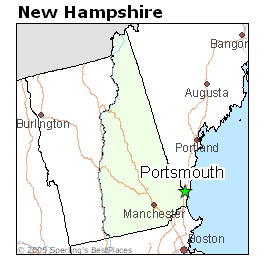
As reported in the USA Today, "N.H. posthumously frees 14 Revolutionary War slaves," on 7 June 2013 -- PORTSMOUTH, N.H. (AP) — New Hampshire has posthumously emancipated 14 slaves who fought in the Revolutionary War and asked state lawmakers for their freedom more than 230 years ago.
A group of 20 slaves submitted a petition to the New Hampshire General Assembly on Nov. 12, 1779, while the war was still being fought. They argued that the freedom being sought by colonists should be extended to them, as well, and maintained that "public tyranny and slavery are alike detestable to minds conscious of the equal dignity of human nature."

Slaves were brought to the colony from Africa by 1645. They were concentrated around the Portsmouth area. Because New Hampshire did not impose a tariff on slave, it became a base for slave importation into America. These slaves were then smuggled into other colonies. (source: http://ejhly1.wix.com/colonial-new-hampshire?_escaped_fragment_=__slavery)
Gov. Maggie Hassan signed a bill Friday emancipating the 14 slaves, who were never freed before they died.
"Their plea fell on deaf ears," she said at a ceremony. "It is a source of deep shame that our predecessors didn't honor this request. But today, more than 230 years too late for their petition, we say that freedom truly is an inherent right not to be surrendered."
The original petition was found in state archives nearly 30 years ago, but supporters pushed lawmakers to pass the bill this year in part to bring attention to an African-American burial ground in downtown Portsmouth, where the city is raising money to build a memorial park to commemorate the site. The remains of six African slaves were discovered at the site several years ago during routine street improvements.

Excerpts from the 1779 petition will be etched in stone and be part of the park.
Valerie Cunningham, who wrote a history of slavery in Portsmouth, noted that the petitioners weren't asking for money, nor were they just asking for their own freedom; they were asking the state to abolish slavery altogether.
"Let's celebrate today with the expectation that this symbolic act will remind us to continue working for social justice here in the Granite State," she said.

Testifying at a public hearing on the bill this year, Woullard Lett, a member of the Manchester NAACP, said it's never too late to right a wrong.
"It's symbolic and 200 years late; however, then and now, it's the right thing to do," he said.
Copyright 2013 The Associated Press. All rights reserved. This material may not be published, broadcast, rewritten or redistributed. (source: USA Today)
The attorney or lawyer will surely deal with the problem for the your highest compensation from which
ReplyDeletethe opposite party.
my blog - http://www.uslugi-detektywistyczne.pl/
Because of the many men and women must pay back income bureaus and daily, the companies
ReplyDeleteobtain demands for bad credit installment loans. Get Out of Debt in Months Instead of Years If
you're one of the many smaller debts. This time take some credit for managing your finances much easier.
Take a look at my blog post :: poor credit finance